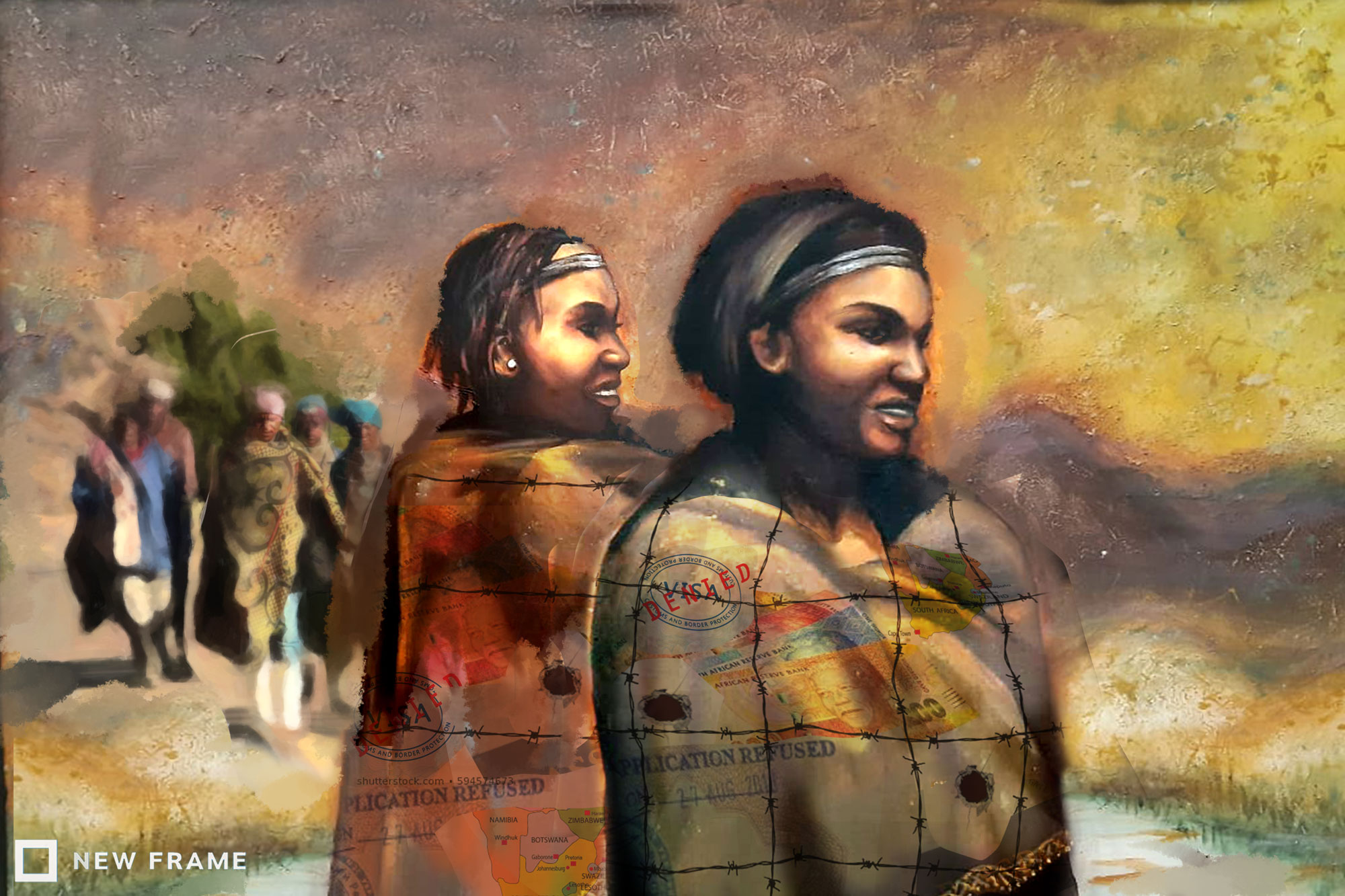Struggles of the undocumented domestic worker
Migrant workers beat many challenges to reach South Africa and are often vulnerable once in the country, but they risk it to provide a better life for those they’re forced to leave behind.
Author:
5 March 2020

At sundown, hordes of homebound retail workers, gardeners and other staffers snake out of Irene amid the hooting and howling of taxis. It’s mid-month and everyone is hissing about the cost of transport since the state-owned Passenger Rail Agency of South Africa (Prasa) suspended the train service in this part of Pretoria.
Limpho Hlalele* is a 32-year-old domestic worker from Lesotho who lives and works in Centurion. She is one of the many live-in nannies and helpers who come to South Africa to make money to send home.
The remittances sent back by those working abroad reportedly make up more than 15% of the gross domestic product of Lesotho, a small country with a population of about two million. Many of these workers are absent mothers, wives and daughters like Hlalele.
Related article:
“While Zimbabwe and Mozambique account for the largest number of migrants, Lesotho is the highest by proportion; almost half of working age Basotho men work in South Africa,” according to Loren Landau, the South African research chair in mobility and the politics of difference at the University of the Witwatersrand.
However, these numbers are meaningless to Hlalele. All she knows is, “I have a child at home. So I must work and send money for school and food.” She turns in her chair and fixes her crimson-coloured domestic worker’s uniform. Hlalele has had her current job since 2019. She works for a young couple, looking after their toddler and helping to clean their home. “They pay me R3 000 per month … I get food and everything, plus a room outside,” she says. She sends R2 000 home using food retailer Shoprite’s Money Market service.
A history of labour migration
Apart from the obvious economic pull and push factors that cause people to migrate, there is history and a culture of movement with which to contend. According to a Statistics South Africa report on migration dynamics, the consistently high rate of migration is also because of a colonial and apartheid-era regional history of labour migration.
Related article:
Crossing her ankles and folding her arms, Hlalele says she is uneasy when she sees law enforcement personnel. This is because she has an unresolved imigration infringement and penalty outstanding. She tells me that in December 2018, she joined the yearly Christmas trek home to Lesotho. Arriving at the border gate, she was told she had overstayed her allowed number of days in South Africa. The violation led to her being barred from re-entering South Africa for five years.
By law, migrants from Lesotho and other similarly designated countries may enter and stay in South Africa for up to 30 days. As an informally employed domestic worker, Hlalele overstayed by more than six months. She could not leave her job to get her passport stamped.
Barred from entering the country legally, Hlalele, like many migrant workers from Lesotho, turned to thugs known as Bo-Matabola Pasa and corrupt Lesotho border officials who make extra cash by helping people cross the border undocumented.
Related article:
To make her way back to work in December, she had to pay R1 000 to a man who promised to clear her name and passport on the system. Hlalele says she “found him from speaking to neighbours while I was at home. They gave me his cellphone number. I called him and went to see him at the border early in January. I gave him the money and my passport.
“I got worried when I realised he didn’t go into the offices but to some building at the back. When he returned, my passport, the red stamp was not there. He had removed it. They call it flushing. The trouble is when I tried to cross. The lady at the office said my passport was still suspended. I couldn’t cross. I went to confront the man, but he threatened me and demanded I delete his number and never to talk to him again. So I had to find another way.”
Travel suspension
The man, who may not have been an imigration official after all, merely erased the stamp in Hlalele’s passport that indicated the suspension. She was still marked as suspended on the immigration system and forbidden entry into South Africa.
Another way for vulnerable migrant workers to cross the border undocumented also involves paying someone. “If you want to cross with them in their car, they charge you R350.” Otherwise, there is the option of crossing on foot, using trails that run beneath the bridge spanning the Mohokare River. “There’s no clear road there. It’s just trees and bushes. We go with the guys that we pay R300 or more to help us cross,” Hlalele says.
Sometimes they are required to make their way under cover of night. Predictably, this can be dangerous. Migrants are often mugged or taken advantage of in other ways. Sometimes, as Hlalele puts it, these men want to be paid while still in the bushes. “They agree with you that you will pay them when we have crossed and we have arrived at the taxi rank. But they can change their mind and ask for the money. If you refuse to give it to them, they can beat you and hurt you in the bush. No one will know.”
Vulnerable to predatory advances
Hlalele first came to South Africa in 2012. “I got a job in Boksburg through my aunt. There was a woman there who needed someone to look after their child and clean the house. It was good work.” Later that year, Hlalele fell sick and had to return home. “I lost that job because they got someone else to replace me. We didn’t know when I would be coming back,” she says. But her employer had told her to let her know when she was healthy again and ready to return to work. She had promised to help her find work among some of her friends that may need domestic help. She delivered on that promise by connecting Hlalele with a family in Polokwane, a job that lasted six years.
Related article:
Leaving and working was fine. She was looking after two toddlers and helping with the upkeep and cleaning of the house for a monthly salary of R2 500. “It was fine in the beginning. Then I started having a problem with the older sons. They started making sexual advances on me. I didn’t like it. I turned them down. I would complain to the parents, but they wouldn’t believe me. So, that was hard. That’s why I chose to leave,” she says.
Many women from Lesotho who come to find work in South Africa have to learn to live with this sort of vulnerability. And those who have entered the country undocumented don’t feel they have access to protection from potential harm and abuse. Being undocumented means they can’t go to the police without being arrested. “If you are sick, I have to be careful which clinic I go to,” says Hlalele. It’s a life of hiding in the open.
Now the Easter holidays are approaching and Hlalele is worried. It’ll soon be time for her to go home and this means facing up to immigration officials and other men she will have to pay in order to cross the border.
*Not her real name




